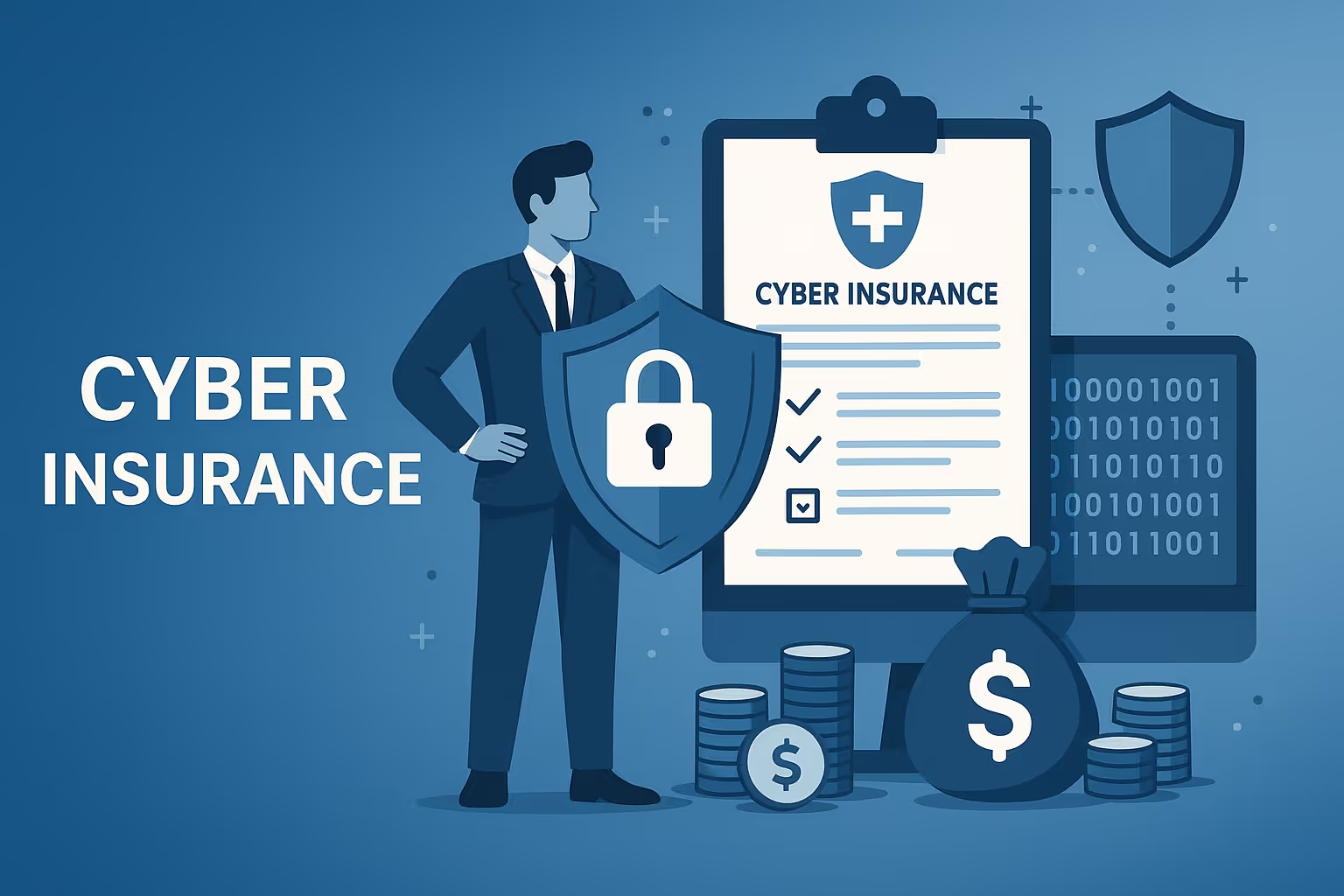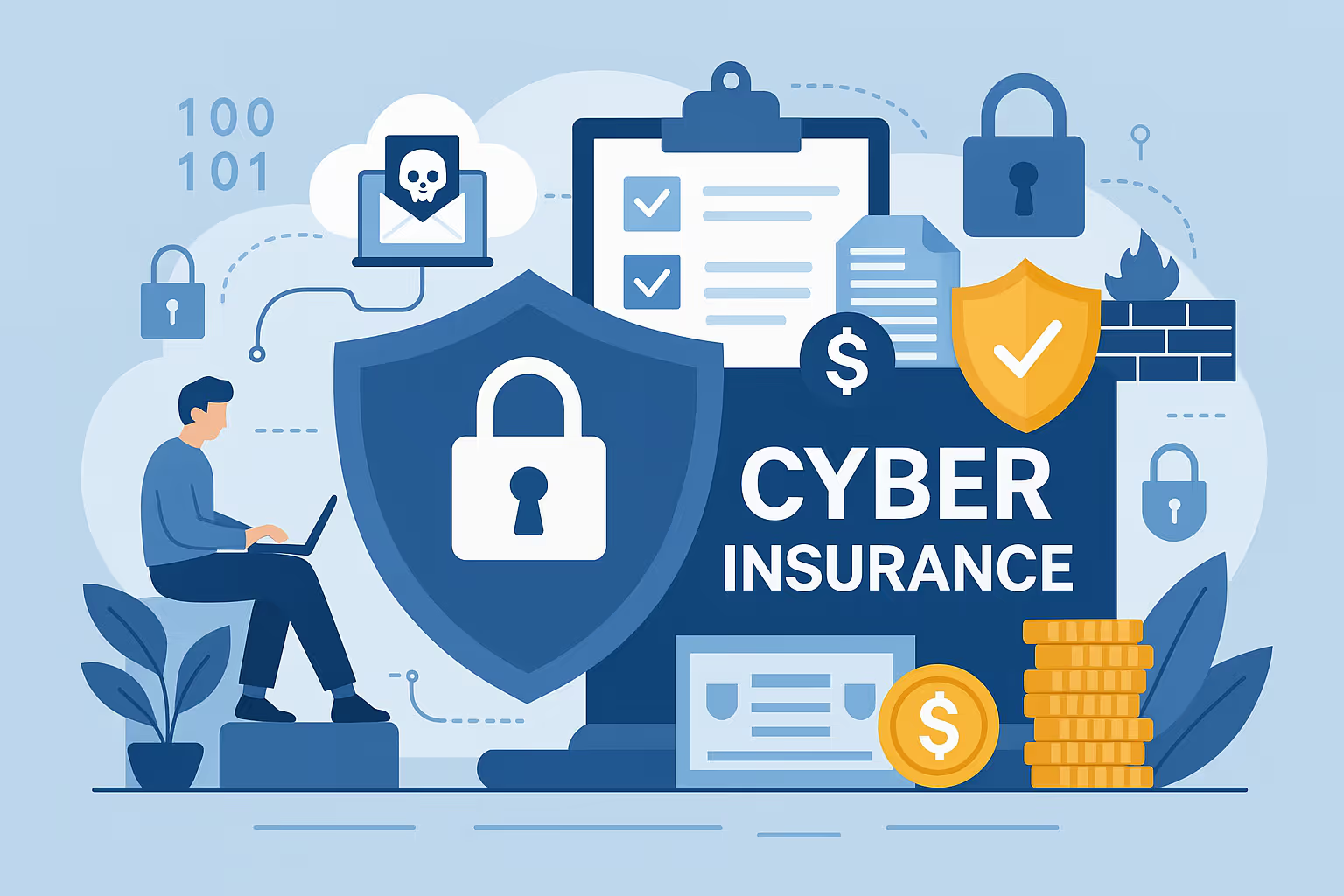
How to get...
Initial Risk Assessment and Self-Evaluation
Compile Essential Documentation
Select and Compare Cyber Insurance Providers
Underwriting Process and Application Submission
Tailoring and Finalizing Your Policy
Ongoing Compliance and Policy Maintenance

Who provides...


Why need...
In the United States, the Retail / E-Commerce sector faces unique cyber risks that can severely impact financial stability, customer trust, and regulatory compliance. As businesses process large volumes of payment data and personal information, they become prime targets for data breaches, ransomware, and Distributed Denial of Service (DDoS) attacks. These threats not only disrupt operations but can also result in significant legal and reputational consequences.
Cyber insurance for Retail / E-Commerce acts as a safety net by providing essential financial support and expert incident response. It covers costs such as legal fees, regulatory fines, notification expenses to affected customers, and even recovery operations after an attack. This protection is particularly critical given that cyberattacks today are sophisticated and can rapidly escalate in damage.
By investing in cyber insurance for Retail / E-Commerce in the United States, businesses can mitigate these risks, ensuring that they have the necessary resources to recover from cyber incidents and continue to operate effectively while maintaining customer loyalty and regulatory compliance.
Cyber insurance coverage for Retail / E-Commerce in the area of data breach and privacy liability protects against losses from unauthorized access to customer information, credit card data, and other sensitive details. This coverage is specifically tailored to address notification costs, public relations expenses, credit monitoring services, and legal defense following a breach. For retailers and e-commerce platforms that process vast amounts of personally identifiable information (PII), this protection reduces the financial and reputational harm from a data breach incident and supports compliance with industry regulations such as PCI-DSS and state-level privacy laws.
Cyber insurance coverage for Retail / E-Commerce extends to business interruption loss, covering lost income and extra operational costs when a cyber incident disrupts business operations. This includes scenarios where systems are rendered inoperative due to a cyber attack, malware infection, or denial-of-service attack. Such coverage stabilizes cash flow by reimbursing fixed expenses and helps maintain customer trust by enabling a swift return to normal operations, while also supporting compliance with service level agreements (SLAs) expected in the retail sector.
Cyber insurance coverage for Retail / E-Commerce encompasses protection against cyber extortion, including ransomware attacks that demand a payment to restore access to encrypted data. This policy covers ransom payments (where legally permitted), negotiation costs, and related professional services to mitigate and resolve the threat. Given the increasing frequency of ransomware incidents targeting retail systems, such coverage is critical to safeguarding operational continuity, protecting customer transactions, and ensuring rapid recovery from disruptive cyber events.
Cyber insurance coverage for Retail / E-Commerce also provides regulatory defense support, including legal counsel, settlement costs, and fines resulting from non-compliance with data protection laws. This coverage is important as regulatory scrutiny grows with the increase in breaches and privacy failures in the retail chain. It assists organizations in managing the costs of regulatory investigations and assures stakeholders of the company’s commitment to legal and operational resilience in the face of evolving data protection regulations.
Build Security with OCD Tech That Meets the Standard — and Moves You Forward
Contact Us
US e-com cyber insurance demands robust defenses. Meeting strict standards secures coverage. It protects revenue.
MFA Implementation: Mandatory Multi-Factor Authentication for email, VPN, privileged accounts, and remote access is crucial for Retail / E-Commerce operations to mitigate credential compromise. Documentation should include MFA policies and system configurations.
Endpoint Detection & Response: Utilization of EDR or advanced AV tools ensures real-time monitoring on all endpoints, which is critical given the dynamic cyber threats facing e-commerce companies. Present EDR deployment reports and vendor certifications.
Firewalls & Intrusion Detection/Prevention: Robust and updated firewalls along with IDS/IPS are required to protect customer data and transaction systems. Evidence of firewall configurations and security audits is expected.
Email Security: With phishing a critical threat, insurers require proven email security measures such as SPF, DKIM, and DMARC alongside phishing filters. Provide email security policy documentation and sample logs.
Data Encryption: Insurers demand encryption in transit and at rest to secure sensitive customer and payment data. Technical implementation reports and encryption policy documentation are necessary.
Patch Management: Regular patch management and vulnerability scans demonstrate proactive risk reduction strategies. Supply records of update schedules, vulnerability scan results, and remediation logs.
Incident Response Plan: Retail / E-Commerce firms must maintain a written incident response plan that outlines immediate actions, communication protocols, and recovery strategies. Detailed incident response documentation is required for underwriting.
Backup Policy: A robust backup policy featuring offsite/immutable backups and regular testing is essential. Insurers need documented backup procedures, test reports, and evidence of data integrity measures.
Access Control: Implementing least privilege access and conducting periodic reviews ensures limited exposure of sensitive systems. Provide access control policies and audit reports demonstrating user access reviews.
Vendor Risk Management: Third-party assessments and continuous vendor risk management are mandatory given the shared risks in Retail / E-Commerce. Documentation of vendor risk assessments and contractual security requirements is essential.
Employee Training: Regular phishing awareness training and incident reporting guidelines must be enforced. Evidence includes training schedules, attendance records, and awareness campaign materials.
Relevant Standards: Meeting standards such as HIPAA, PCI DSS, SOC 2, or ISO 27001 is critical for cyber insurance requirements for Retail / E-Commerce. Compliance demonstrates that data protection measures align with industry best practices. Provide certification reports, attestation letters, and compliance audit results.
Regulatory Reporting Procedures: Clear procedures for reporting data breaches in accordance with U.S. data breach laws are essential. Detailed documentation of regulatory reporting workflows and communication plans is required by insurers.
Cyber Risk Questionnaires: Insurers require completion of detailed cyber risk questionnaires that assess the security posture and operational resilience of Retail / E-Commerce companies. Accurate responses, backed by documented controls, are pivotal for policy pricing.
External Assessments: For higher coverage limits, periodic external vulnerability scans, penetration tests, and audit reports are necessary. Provide recent scan summaries, penetration test reports, and third-party audit results to verify risk mitigation and control robustness.
Secure Your Business with Expert Cybersecurity & Compliance Today
Contact Us


Differences by State...
These state-specific differences impact how organizations evaluate, purchase, and maintain their cyber insurance policies. For example, companies must:
By understanding these state-specific requirements, organizations in the Retail / E-Commerce sector can make informed decisions that help them achieve a balance between cost, compliance, and comprehensive protection in their pursuit of effective cyber insurance.

Compliance & Frameworks...

Audit. Security. Assurance.
IT Audit | Cybersecurity | IT Assurance | IT Security Consultants – OCD Tech is a technology consulting firm serving the IT security and consulting needs of businesses in Boston (MA), Braintree (MA) and across New England. We primarily serve Fortune 500 companies including auto dealers, financial institutions, higher education, government contractors, and not-for-profit organizations with SOC 2 reporting, CMMC readiness, IT Security Audits, Penetration Testing and Vulnerability Assessments. We also provide dark web monitoring, DFARS compliance, and IT general controls review.
Contact Info
.svg)
OCD Tech
.svg)
25 BHOP, Suite 407, Braintree MA, 02184
.svg)
844-623-8324
.svg)
https://ocd-tech.com
Follow Us
Videos
Check Out the Latest Videos From OCD Tech!
Services
SOC Reporting Services
– SOC 2 ® Readiness Assessment
– SOC 2 ®
– SOC 3 ®
– SOC for Cybersecurity ®
IT Advisory Services
– IT Vulnerability Assessment
– Penetration Testing
– Privileged Access Management
– Social Engineering
– WISP
– General IT Controls Review
IT Government Compliance Services
– CMMC
– DFARS Compliance
– FTC Safeguards vCISO